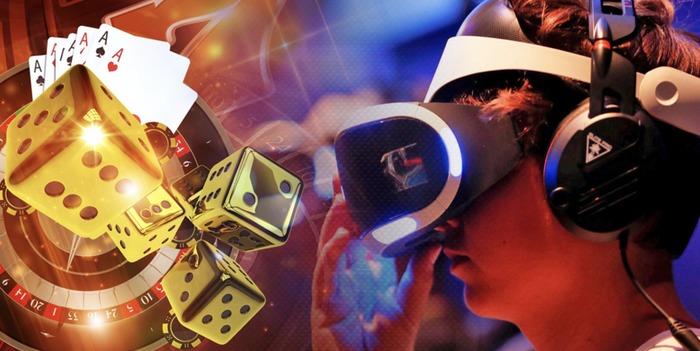As we venture into the future, the virtual reality world continues to blur the lines between the digital realm and reality, particularly in the ever-expanding field of online casinos. Most gamers can now enjoy thrilling games and massive rewards. However, one thing still remains a challenge – balancing immersion and cybersecurity.
In this regard, we will explore the delicate balance between creating an immersive virtual reality casino experience and ensuring top-notch security to protect sensitive player information.
The Rise of VR Casinos
The rise of VR Casinos has been nothing short of a supernova in the gaming galaxy. The thrill of strolling through a bustling casino, hearing the ringing of slot machines, and feeling the rush of adrenaline as you sit down at a blackjack table is now all available within your very own four walls. Thanks to the magic of VR, players can now learn how to play blackjack, strike up a conversation with a virtual dealer, and even interact with other players from around the globe. VR Casinos are undoubtedly revolutionizing our approach to online gaming.
Understanding the Risks
With great VR casino experiences comes great responsibility, and we’re not just talking about responsible gambling here. The shift to VR gaming also brings a set of cyber threats that we must be aware of and proactively manage. This includes potential data breaches, hackers trying to nab your personal and financial information, and identity theft.
There’s also the risk of downloading malware or viruses onto your device through the casino’s software. And let’s not forget about the lack of regulation in the VR space, which could expose players to unfair gaming practices. So, while the excitement of VR casinos is sky-high, it’s essential for us to stay informed and vigilant about these possible risks.
The Role of Encryption
So, how do you shield yourself from these cyber nasties? Encryption is the secret weapon in ensuring your personal and financial data stays personal. Encryption works by transforming readable data (known as plaintext) into an unreadable format (called ciphertext) using a set of complex algorithms. Only those with a unique key can decode this ciphertext back into plaintext. In simpler terms, it’s like converting your data into an alien language that only you can understand.
Encryption adds a vital layer of security in casinos by ensuring that all communication between you and the online casino server is scrambled. This means that even if some sneaky hacker intercepts your data, all they’ll see is a bunch of gobbledegook.
With encryption, your cash deposits, withdrawal requests, and even your chats with players or dealers are all kept away from prying eyes. It’s like having your very own cyber bodyguard.
Multi-Factor Authentication (MFA)
Now, let’s talk about another big player in the cybersecurity game: Multi-Factor Authentication, or MFA for short.
MFA is a security method that requires you to provide at least two verification factors to gain access to your online accounts. Think of it as the multiple locks on a bank vault; it’s not enough to have the right password or key; you need to provide additional proof that you’re the rightful account owner. This could be something you know (like a password), something you have (like a verification code sent to your mobile device), or something you are (like a fingerprint or voice recognition).
When you combine these factors, you create a robust defense network that makes it super tough for any hacker to break through. It’s like having a high-tech combo lock on your VR casino account. With MFA, you can roll the dice, spin the wheel, or deal the cards with peace of mind, knowing that your account is secure.
Privacy Policies Unveiled
Most people skim through long, jargon-filled documents without much attention to the details. However, you’ll want to ensure you’re not playing fast and loose with your privacy when it comes to VR casinos. Privacy policies are the rulebook that most VR casinos follow when handling your personal data.
A good Privacy Policy will clearly outline what data the casino collects, how it’s used, and, most importantly, how it’s protected. It’ll also explain how long your data is stored and who it’s shared with, if anyone. You don’t want your data floating around like a rogue chip on a roulette wheel!
So, you may want to read that policy to ensure the VR casino is playing by the rules and that those rules are in your favor.
The Future of Cybersecurity in VR Casinos
As we venture boldly into the future of VR Casinos, cybersecurity practices must keep pace with technological leaps. We’re talking about biometric authentication, where your unique physical characteristics (like your face, voice, or fingerprint) are used to verify your identity. We’re also likely to see more advanced machine learning algorithms and AI systems deployed to detect and neutralize threats in real time. Rather than reacting to breaches after they occur, these systems will proactively identify and address vulnerabilities, creating a kind of ‘cyber immune system.’
And let’s not forget about blockchain. This technology, which underpins cryptocurrencies like Bitcoin, can provide a transparent and secure transaction framework, reducing the risk of fraud and data tampering.


